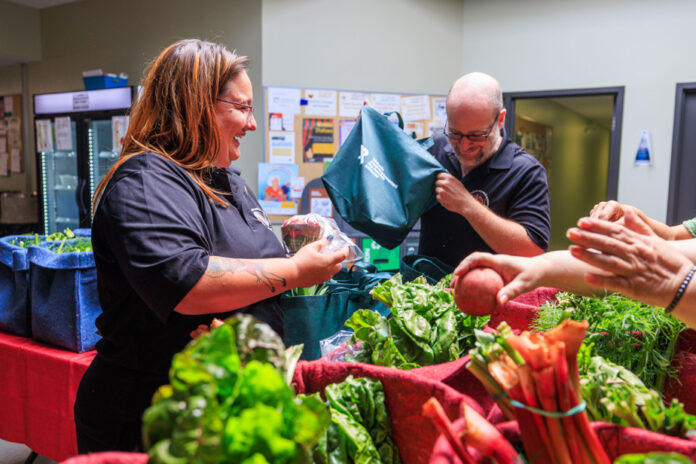Statistics Canada told us on Tuesday that, despite the rate of inflation easing, food prices remain high. With food inflation over 9% in June, many people have to (further) compress food.
“We have to stop seeing food as something that can be compressed and which is always the minimum,” maintains sociologist Jean-Philippe Laperrière, director at Concertation en securité Alimentaire de Saint-Léonard. He signs a study on the subject with his colleague Mylène Thériault.
“We don’t want to impose a recalculation of everything,” he said. What we mean is that today, we may have to give more space to food. It is important for health, but it is also important for mental health and identity health. »
The researchers propose a new indicator, the Decent Food Budget, which would take into account ethnocultural specificities related to food, even an idea of pleasure and flavor that is naturally discarded when it comes to food security in a survival situation.
According to calculations often used, the minimum amount that should be spent on food is around $10 per day, per person.
It is entirely possible, say the two researchers, but it does not make good sense in the medium term, or even in the short term.
Because to reach this total, day after day, you have to cook everything, without having access to local or organic ingredients, which are often too expensive. Unless you get them back through an aid program, which is always possible, but requires extra effort.
Even bought without artifice, meat is becoming increasingly rare in the baskets of families with lower incomes, because it is too expensive. For a few days, substitutions can be an enjoyable creative exercise; year-round is stressful, researchers say.
“It takes about double the minimum [established around $10] to be able to make choices,” says Jean-Philippe Laperrière, who has been teaching the Nourrir la ville course for 12 years at UQAM.
Because the cheapest possible food is inevitably generic. “It is the most mundane rice and the most mundane flour. »
The Canadian government’s Nutritious Food Basket and the Montreal Diet Dispensary calculate the minimum amount that should be spent on healthy eating. The Dispensary has been doing the exercise for over 70 years. With the current context, the tool was adjusted and became the Nutritious and economical shopping basket at the start of the year. It is estimated that it takes at least $8.70 for a person who wants to eat well – with variables depending on each person’s situation.
“Filling in a weekly food budget of $250 requires households to make sacrifices in their personal tastes to the point of having to give up some key parts of their cooking repertoire,” the report reads.
Jean-Philippe Laperrière and Mylène Thériault calculate that it is rather $18.96 that should be devoted to the daily food budget.
Both work in the community setting and this is where they decided to test their ideas.
About 30 consumers participated in their project; their annual incomes were $15,000 to $80,000.
“We see that in the field, even the least well-off people spend more than $10 a day,” says Mylène Thériault. This figure is not realistic. »
The risk, they say, is that by always using indicators that define the bare minimum, it becomes an established and acceptable standard.
The study entitled Emergence of a new indicator for a decent food budget for Quebec households is published in the journal Organizations
“We clung to the word ‘decent’ because it recalls dignity,” says Jean-Philippe Laperrière. We often talk about the viable, but you have to know that we nourish two things when we eat: the body, but also the imagination and the identity. »















